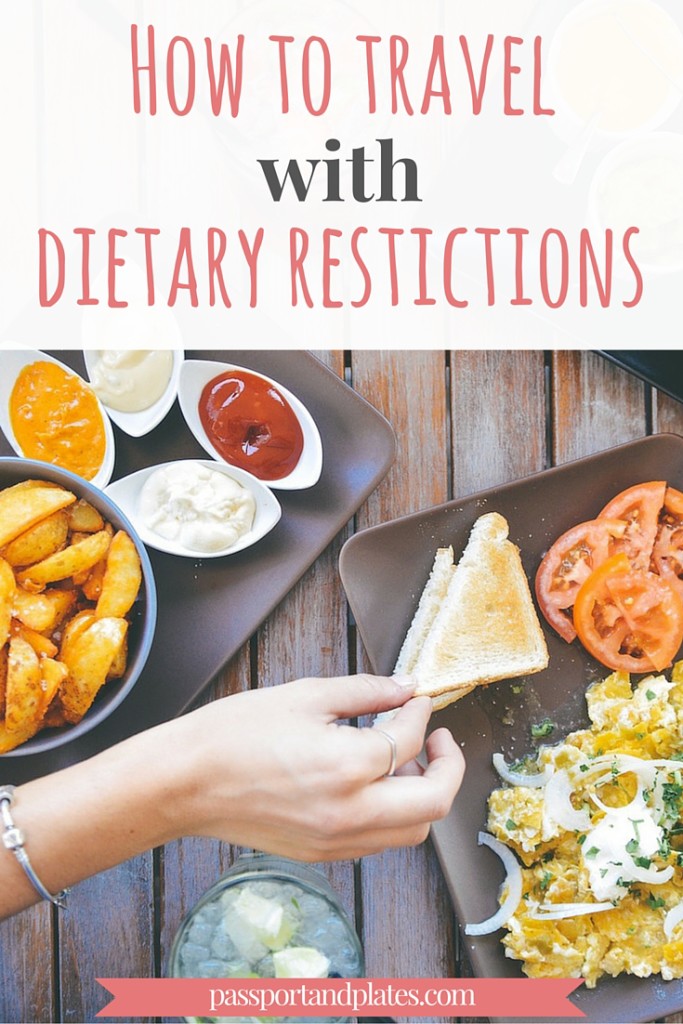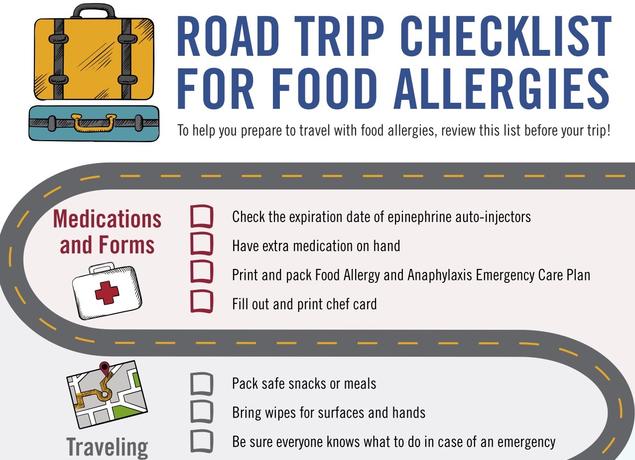Traveling can be an incredible adventure, but for those with dietary needs or allergies, it can also be a daunting task. From navigating unfamiliar cuisines to finding suitable options, managing your dietary restrictions while on the road can seem overwhelming. However, fear not! In this article, we will provide you with valuable tips and strategies to help you successfully handle your dietary needs and allergies while traveling. So pack your bags and embark on your next journey, knowing that delicious and safe food options await you!
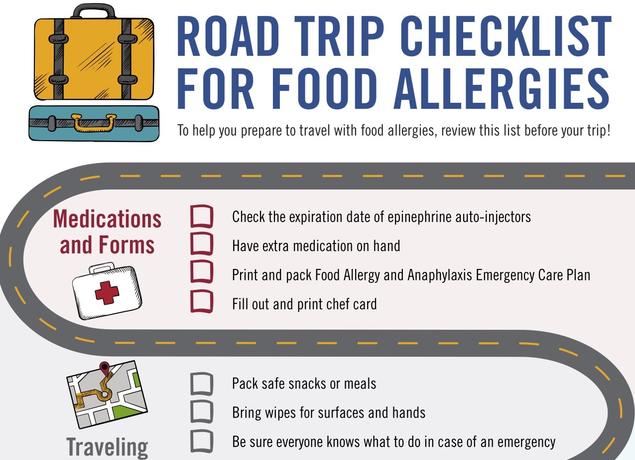
Researching Your Destination
Gather Information on Local Cuisine
When planning your trip, it’s essential to gather information about the local cuisine of your destination. Learning about the traditional dishes, ingredients, and cooking methods can help you better understand what options will be available to you. Look for online resources, travel guides, or local food blogs that can provide insights into the food culture of the place you are visiting.
Identify Safe Restaurants and Food Options
Once you have an idea of the local cuisine, it’s crucial to identify safe restaurants and food options that can accommodate your dietary needs and allergies. Take the time to research and make a list of restaurants that offer allergen-free or customizable menu options. Look for restaurants that are known for their knowledge and understanding of dietary restrictions. Reading reviews or reaching out to fellow travelers or locals can help you find the best places to eat.
Contact Accommodation for Special Requests
Before your trip, make sure to contact your accommodation and inform them about any special dietary requests you may have. This will allow them to make the necessary arrangements and ensure that your needs are taken into consideration. Whether it’s requesting a refrigerator in the room to store your own food or asking for allergen-free bedding, notifying your accommodation in advance can significantly contribute to a smoother and more enjoyable experience.
Packing Essentials
Carry Snacks and Safe Food Options
When traveling with dietary needs or allergies, it’s important to always be prepared with safe food options. Pack a variety of snacks that are safe for you to consume and can serve as convenient alternatives if you can’t find suitable food options. Granola bars, dried fruits, nuts, or gluten-free crackers are excellent choices. These snacks can provide you with sustenance during long flights, bus rides, or when you simply can’t find a suitable meal.
Medications and Medical Documentation
Don’t forget to pack your necessary medications and any relevant medical documentation. It’s essential to have your medications readily available in case of any emergencies or unexpected allergic reactions. Carry them in your carry-on bags or purse, ensuring easy access whenever needed. Additionally, bring along a copy of your medical documentation, especially for severe allergies, to provide to healthcare professionals if required.
Communicating Your Dietary Needs and Allergies
Learn Key Phrases and Terms in the Local Language
Learning key phrases and terms related to your dietary needs and allergies in the local language can be immensely helpful when communicating with locals or restaurant staff. Phrases like “I have a peanut allergy” or “Does this dish contain gluten?” can allow you to effectively convey your requirements and ensure that your meals are prepared accordingly. Use language learning apps or guidebooks to familiarize yourself with these essential phrases before your trip.
Create a Dietary Alert Card
A dietary alert card can be a valuable tool when traveling with dietary needs or allergies. Create a card that clearly states your allergies or dietary restrictions in both English and the local language of your destination. This card can be easily presented to restaurant staff or food vendors, minimizing any language barriers and helping them understand your needs accurately. Include the specific ingredients or types of cuisine to avoid, making it easier for others to assist you.
Inform Airline or Transportation Services
If you have dietary restrictions or allergies, it’s essential to inform the airline or any transportation services you will be using during your journey. Airlines often provide special meals such as gluten-free, dairy-free, or vegetarian options. By informing them of your requirements in advance, you increase the chances of having a suitable meal. If you are taking a train or bus, check if they offer any allergen-free or customizable food options or consider packing your own meals.
Eating Out
Inform Restaurant Staff about Dietary Restrictions
When dining out, it’s crucial to inform the restaurant staff about your dietary restrictions or allergies. Don’t hesitate to ask your server if they can accommodate your needs. Explain your requirements clearly and provide them with your dietary alert card if necessary. Good communication ensures that the staff understands the seriousness of your needs and can take necessary precautions when preparing your meal.
Ask for Ingredient Lists and Preparation Methods
To ensure that your meal is safe, always ask for ingredient lists and preparation methods. In some cases, menu descriptions may not provide enough information about potential allergens or cross-contamination risks. By asking for detailed information, you can make informed decisions about what dishes are suitable for you. If you are unsure about the safety of a particular dish, it’s best to avoid it to prevent any allergic reactions.
Avoid Cross-Contamination
Cross-contamination is a significant concern for individuals with food allergies. When dining out, inform the staff about your allergy and the importance of preventing cross-contamination. Ask if separate utensils, cutting boards, or cooking surfaces can be used to prepare your meal. Additionally, be cautious of shared condiments or buffet-style setups where cross-contact can be more common. Taking these precautions significantly reduces the risk of accidental exposure to allergens.
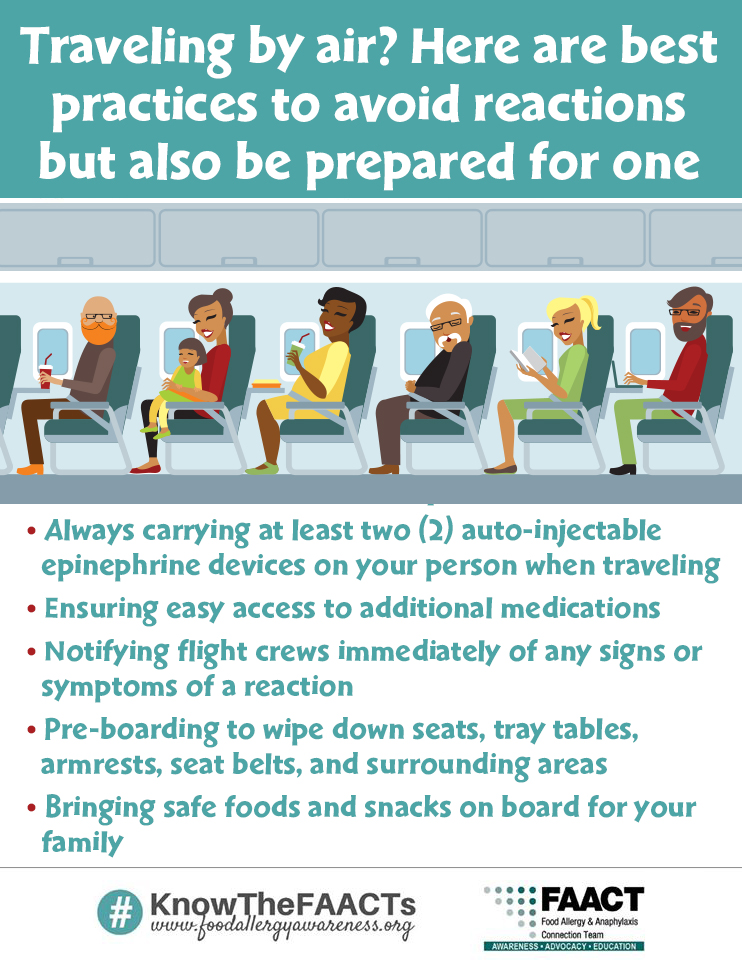
Navigating Street Food
Research Local Street Food Practices
Street food is often an exciting part of exploring a new destination, but it can present challenges when you have dietary needs or allergies. Before indulging in street food, research the local street food practices of your destination. Look for reliable sources that can provide information about hygiene standards, cooking methods, and common allergens used in street food. This will help you make informed decisions and navigate the street food scene more safely.
Observe Hygiene and Food Handling Practices
When purchasing street food, pay close attention to the vendor’s hygiene and food handling practices. Look for vendors who follow proper hand hygiene, wear gloves when handling food, and keep their cooking equipment clean. Observing these practices can give you an indication of the vendor’s commitment to food safety and reduce the risk of foodborne illnesses or allergen contamination.
Ask Street Vendors about Ingredients
Don’t hesitate to ask street vendors about the ingredients used in their dishes. If you are unsure whether a particular item contains an allergen, ask the vendor directly. Be polite and respectful while inquiring, and if there is any doubt or uncertainty, it’s best to err on the side of caution and choose an alternative street food option. Remember to refer to your dietary alert card and use key phrases in the local language to facilitate communication.
Being Prepared for Emergencies
Carry Emergency Medications
When traveling with dietary needs or allergies, it’s crucial to carry emergency medications at all times. Ensure that you have an adequate supply of any prescribed medications, such as epinephrine auto-injectors for severe allergic reactions. Keep these medications easily accessible, preferably in a carry-on bag or a waist pouch. In case of accidental exposure to allergens, prompt administration of medication can be lifesaving.
Know How to Seek Medical Help
Before your trip, research and note down the contact information for local medical facilities or emergency services in your destination. Familiarize yourself with the healthcare system and understand how to seek medical help in case of an emergency. Knowing where to go and how to communicate your situation can save valuable time and ensure that you receive the necessary medical attention promptly.
Inform Travel Companions and Emergency Contacts
Make a point to inform your travel companions about your dietary needs and allergies. Educate them about the symptoms of allergic reactions and how to administer any emergency medications if required. Having a support system who understands your situation can provide you with an added sense of security and peace of mind. Additionally, share your itinerary and emergency contact information with your loved ones back home, ensuring they can be reached if needed.
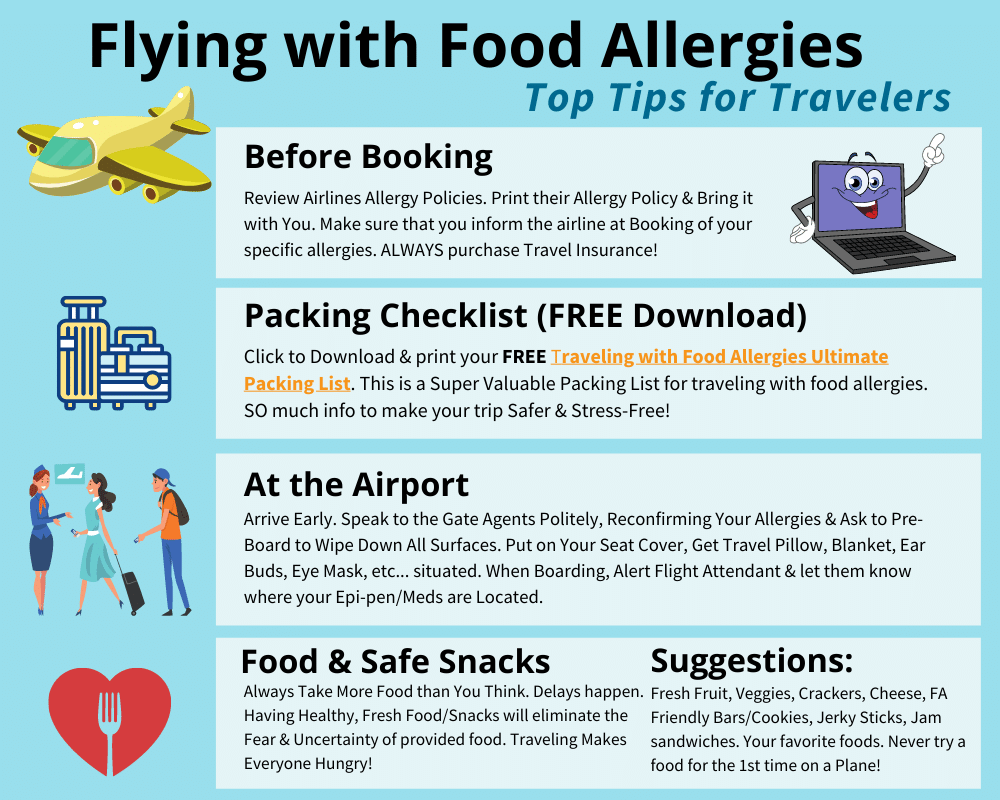
Understanding Food Labels and Packaging
Read Labels for Potential Allergens
When shopping for food items in a foreign country, it’s important to read labels carefully to identify potential allergens. Pay attention to ingredient lists and look out for common allergens such as peanuts, tree nuts, soy, dairy, wheat, or shellfish. Familiarize yourself with the local language’s terms and translations for these allergens to ensure that you can identify them on product labels. If in doubt, avoid purchasing products without clear ingredient information.
Understand Food Labeling Laws in Different Countries
Different countries have varying food labeling laws and regulations. Take the time to understand these regulations for your destination to navigate food labels more effectively. Some countries require specific allergens to be listed on labels, while others may have different labeling practices. Researching and familiarizing yourself with these laws beforehand can be invaluable when selecting safe food products.
Identify Common Hidden Ingredients
Apart from allergens listed on labels, certain hidden ingredients can pose a risk to individuals with dietary needs or allergies. For example, sauces or seasonings may contain gluten, or dishes may be cooked with hidden sources of dairy. Be cautious of these hidden ingredients and ask for clarification when in doubt. Learning about the common hidden ingredients in local cuisine can help you make informed decisions and avoid potential allergic reactions.
Pack Safe and Efficient Cooking Tools
Carry Portable Utensils
Carrying your own set of portable utensils can be extremely useful, especially when dining out or preparing your meals on-the-go. Pack lightweight and compact utensils such as a collapsible fork, knife, and spoon set. These utensils can come in handy when you encounter limited options or questionable cleanliness. Having your own utensils ensures that you can safely enjoy your meals without worrying about potential cross-contamination or hygiene concerns.
Use Travel Cookware to Prepare Safe Meals
Consider packing travel cookware if you anticipate the need to prepare your meals during your trip. Portable cooking appliances like a mini stove or an electric skillet can provide you with the flexibility to cook your own food using safe ingredients. This can be particularly beneficial when you have severe allergies or are visiting a destination with limited allergen-free dining options. Use these tools responsibly and follow local regulations regarding the use of cooking equipment in your accommodation.
Consider a Small Cooler or Food Storage Containers
If you need to carry perishable food items, consider packing a small cooler or food storage containers. This will allow you to keep your food fresh and safe during your journey. If you rely on certain safe food options or have dietary restrictions that require specific ingredients, having the ability to store and transport these items can make your travel experience more manageable. Opt for insulated cooler bags or containers that can maintain the proper temperature for your food.
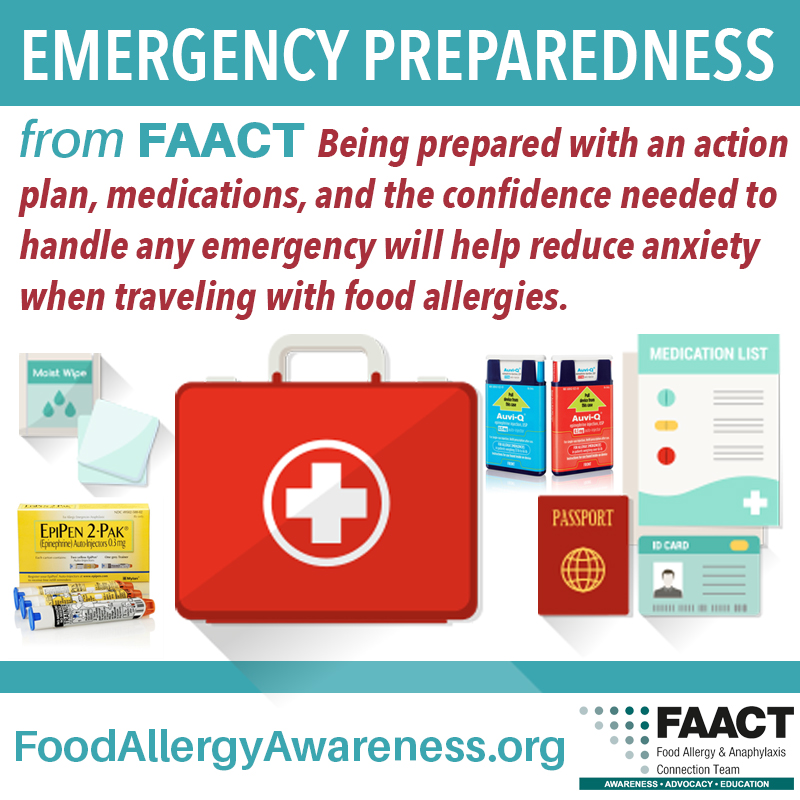
Research Local Laws and Regulations
Find Information on Food Allergy Laws
Before traveling, research the food allergy laws and regulations in your destination country. Some countries have specific laws aimed at protecting individuals with dietary needs or allergies. Understanding these laws can give you a better idea of the legal protections in place and how they may impact your travel experience. It’s also helpful to be aware of any specific requirements or rights you may have under these laws.
Understand Legal Protections for Individuals with Dietary Needs
In addition to food allergy laws, some countries may have legal protections in place for individuals with dietary needs. This may include requirements for restaurants and food establishments to provide allergen information or accommodate specific dietary restrictions. Familiarize yourself with these legal protections to ensure that your rights are respected and upheld during your travels.
Know the Food Safety Standards and Guidelines
It’s essential to be aware of the food safety standards and guidelines in your destination country. Understanding the local regulations surrounding food handling, preparation, and storage can help you make informed decisions about where to dine safely. Look for information from reputable sources, such as government websites, that can provide guidance on food safety practices that are specific to your destination.
Seek Advice from Experts
Consult a Doctor or Nutritionist
If you have specific dietary needs or allergies, consulting with a doctor or nutritionist before your trip can provide valuable guidance. They can assess your individual circumstances and provide tailored advice on managing your dietary needs while traveling. They may recommend specific foods to avoid, alternative options, or supplements to consider. Getting professional advice will enhance your preparedness and help you make informed decisions during your journey.
Join Online Travel Forums and Allergy Support Communities
Joining online travel forums and allergy support communities can connect you with fellow travelers who have similar dietary needs or allergies. These platforms often provide a wealth of knowledge, tips, and recommendations from experienced individuals. Engaging with these communities can not only provide you with valuable insights but also offer a sense of support and camaraderie, knowing that you are not alone in managing your dietary needs while traveling.
Learn from Experienced Travelers
Experienced travelers who have successfully managed their dietary needs or allergies can be a great source of information and inspiration. Look for travel blogs, social media accounts, or personal stories shared by those who have navigated similar challenges firsthand. They may have discovered hidden gems for safe dining, useful travel hacks, or practical tips that can enhance your travel experience. Learning from their experiences can empower you to make the most of your trip while staying safe and healthy.
In conclusion, managing dietary needs and allergies while traveling requires thorough research, effective communication, and careful planning. By gathering information about your destination, identifying safe food options, and packing essential items, you can set the foundation for a successful journey. Communicating your dietary needs, understanding local practices, and being prepared for emergencies will help you navigate dining out and street food experiences. Understanding food labels, packing safe cooking tools, and researching local laws will further contribute to your safety and comfort. Finally, seeking advice from experts and learning from experienced travelers will provide you with additional insights and support. With these comprehensive tips, you can confidently embark on your travel adventures while managing your dietary needs and allergies effectively. Bon voyage!
